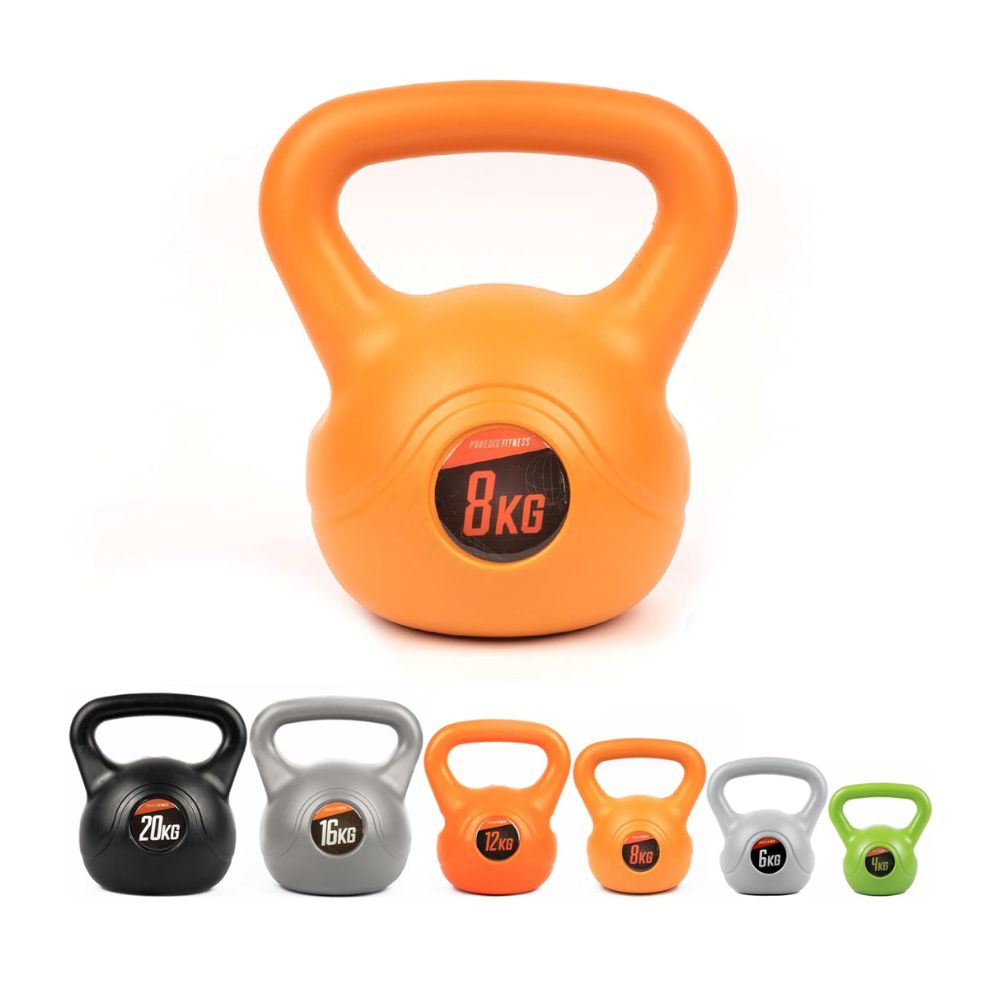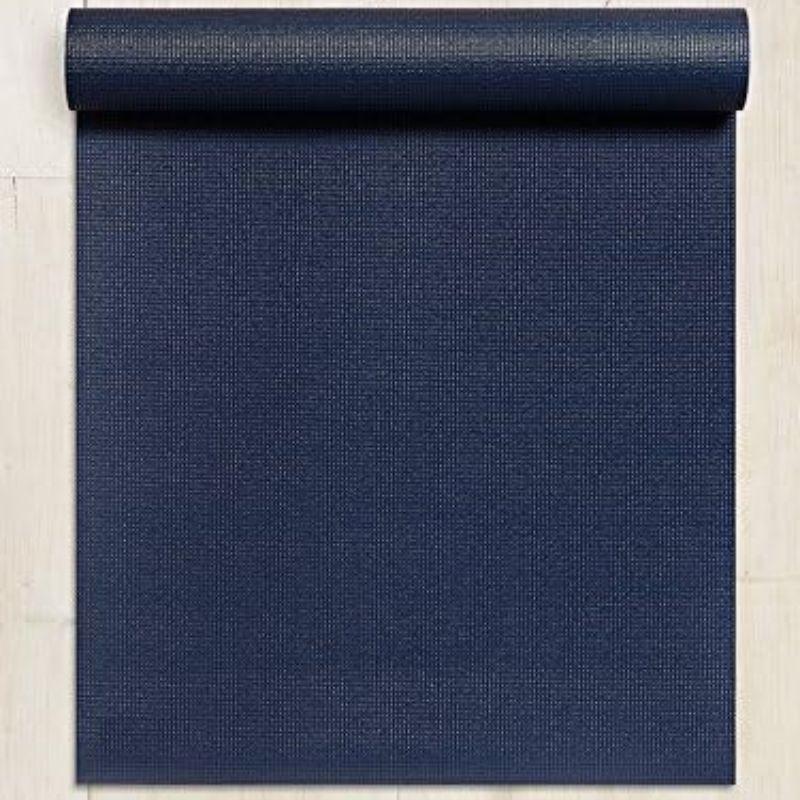The 8 best strength training apps for working out at home or in the gym, tested by us
One of the best strength training apps can help you perfect your form and routine from home or the gym. Here, we've tried and tested the top picks
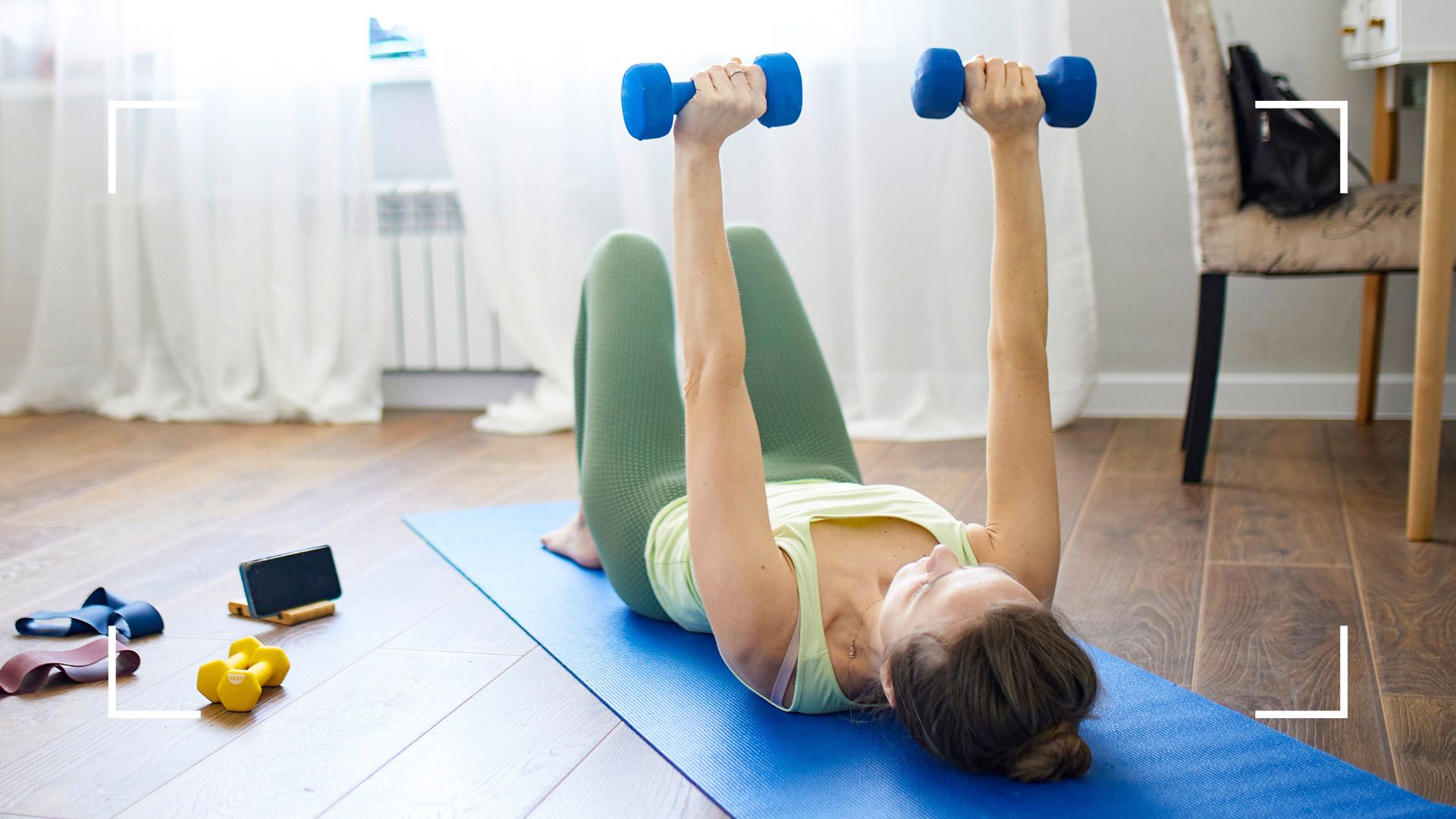

One of the best strength training apps can help you fit in this all-important exercise, no matter your access to equipment, space, the time you have to spare, and your previous experience with weights.
Whether you're completely new to resistance workouts and only have your body weight, or you've been doing it for years and are looking for a new way to utilise your pick of the best dumbells and resistance bands, we've got you covered.
Along with specialist strength training apps, many workout apps feature strength training sessions as part of the offering, so finding one that works for you amid the hundreds can be difficult. As woman&home's digital health editor, I've tried and tested all the go-to apps and favourites. Here, I deliver a round-up of the very best of paid-for and free options available to download now.
The best strength training apps
The list in brief:
1. Best free app: The Nike Training App
2. Best for home workouts: Fiit
3. Best for the gym: Fitbod
4. Best for beginners: The Gymshark Training App
5. Best for Apple users: Apple Fitness+
6. Best for weight loss: Kic
7. Best for women over 50: Owning Your Menopause
8. Best for improving your health: Sweat
The best strength training apps, tested by us
The best free strength training app
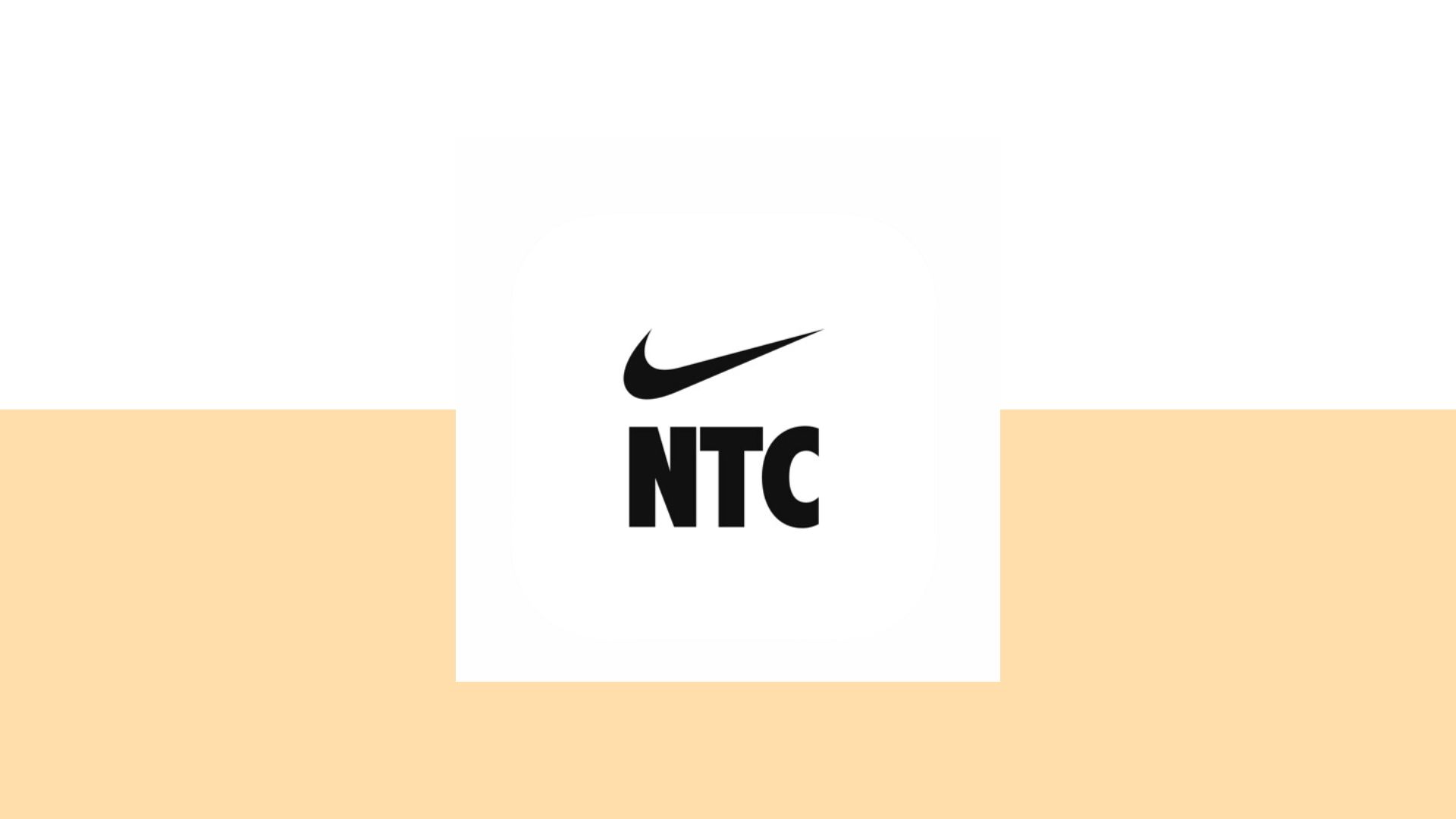
1. Nike Training App
Our expert review:
Specifications
Reasons to buy
Reasons to avoid
Much like Gymshark, Nike is best known for the kit they sell. From the running shoes that help win marathons to athleisure wear, this brand has led the way in fitness kit for a generation already. The brand has added a training app - which is totally free to download and use as often as you like, for as long as you like - into their collection now too, with much success.
The Nike Training App offers four types of resistance training workouts: Endurance, Mobility, Strength, and Yoga. The first of the four (Endurance) is the best for beginners and those looking to do bodyweight workouts as it involves no equipment and focuses on building up your fitness. The Strength portion of the app also features plenty of bodyweight workouts but you'll find a few where you'll need a basic set of dumbbells or kettlebells.
All the workouts are customisable with filters you can apply to find the right workout for you, whether you want to work out for 10 minutes or 45 minutes. You can even filter workouts by how you're feeling on any given day. Need to boost your mood? Take on the 'Energetic' yoga flow.
The Nike Run App takes one of the top spots in our tried and tested list of the best running apps too, so if you're weighing up cardio vs strength training, it may be worth downloading both.
Sign up for the woman&home newsletter
Sign up to our free daily email for the latest royal and entertainment news, interesting opinion, expert advice on styling and beauty trends, and no-nonsense guides to the health and wellness questions you want answered.
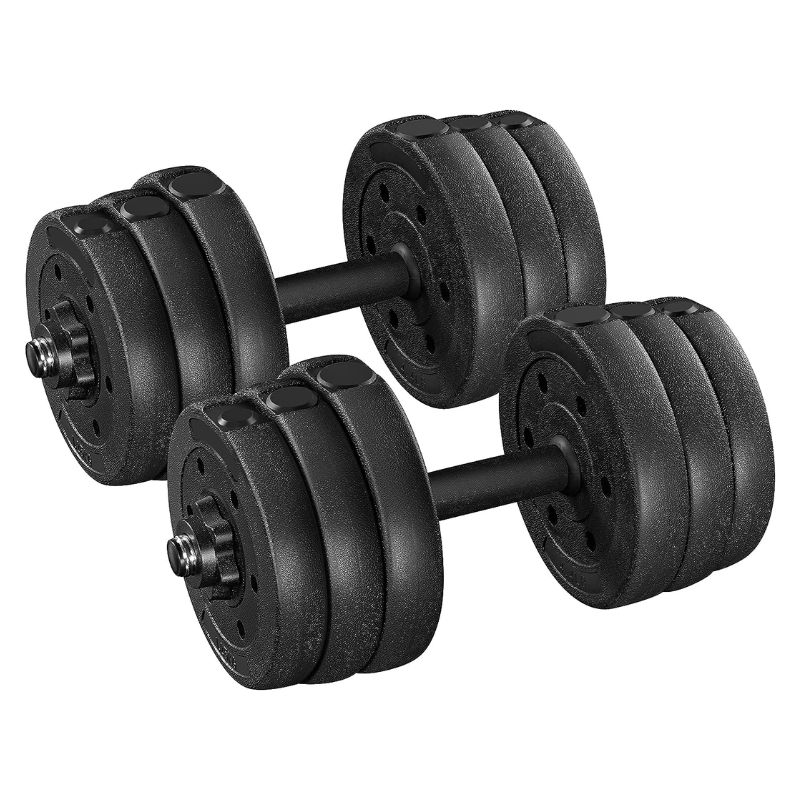
A pair of adjustable dumbbells can help you level up your strength training routine if you're working out at home. Mix and match your weights to suit your workout, putting plates on and taking them off as needed, while saving on storage space.
The best strength training app for home workouts

2. Fiit
Our expert review:
Specifications
Reasons to buy
Reasons to avoid
Fiit is a premium, video-led workout app with hundreds of strength training workouts available live and on-demand, so you can pick up a session anytime. For those looking to get more out of their yoga mat workouts, I recommend this app time after time as you can stream studio-made videos directly to most smart televisions and you don't need any equipment to get started.
Bodyweight, Dumbbell, Kettlebell, and Recovery make up the strength training programmes offered on the Fiit app. Within each, you'll find workouts ranging from 10 minutes to over an hour, targeting various areas of the body, and led by a great variety of trainers who take you through each move step-by-step, offering form tips along the way. There are also cardio options available, including indoor cycling and treadmill workouts, and a whole range of environment or goal-focused programs. My favourite for home workouts is the Quiet Workouts range, designed to keep you light on your feet so as not to disturb any downstairs neighbours.
One element of the Fiit app that I love, aside from the huge variety of strength training sessions available, is that the app tells you exactly what you're getting yourself in for. Tap into the session and you'll see everything you need to know about the class before you begin - including the fitness level the session is geared towards, the weight you'll need, and the muscles you'll be targeting.
The best strength training app for the gym

3. Fitbod
Our expert review:
Specifications
Reasons to buy
Reasons to avoid
Fitbod is the strength training app I've had in the aptly named 'Gym' folder on my phone for the longest. It's specifically designed to be used in the gym (but it does have bodyweight workouts available) as the main function of the app is to design a reps-and-sets-based workout plan.
On sign-up, you'll find several filters to tap through, including workout duration, equipment, current fitness level, and the muscles you want to target during your workout. You can also choose to blend bodyweight moves with resistance and add an app-led warm-up or cool-down to your session, which makes the app entirely customisable to your needs.
This isn't an app for those new to strength training, however. You'll need to have some knowledge of the activity to start with and know how to use free weights and gym equipment to safely and effectively use the app. If you've already been going to the gym for a few years or are looking to move away from in-person personal training sessions and plan your own workouts, this could be the app for you. While there are form demonstrations available to help with technique, there are no follow-along video workouts available.
The best strength training app for beginners

4. The Gymshark Training App
Our expert review:
Specifications
Reasons to buy
Reasons to avoid
Gymshark may be best known for selling the best workout leggings and running shorts but they've expanded their offering in recent years to include a strength training app. The Gymshark Training App is our best pick for beginners as you can truly walk onto your mat, without any equipment, for the first time and take up strength training for the very first time. No prior knowledge is needed - this app has it all and is completely free to download and use.
Along with follow-along video workouts, the app offers a selection of 'How To' demonstrations. These cover techniques to start weightlifting for beginners - like deadlifts, squats, and overhead presses - along with guides on using the equipment in the gym. The Create section of the app offers you the freedom to create your workout from scratch as well - much like the Fitbod app - but there are clear demonstration videos with each move to ensure your form is picture-perfect before you get started. Here, I also found the largest collection of bodyweight-only moves out of all the apps. If you're looking to do strength training at home for beginners, this could be the best place to start.
There are no hidden costs or additional extras to purchase and the app offers both individual workouts - filtered out by type (e.g. dumbbell or body weight), body part, and format (sets and reps or follow-along videos) - and full programs to follow over several weeks. If you're based in London, you can also sign up for their free, weekly workout classes and run club that takes place at the Regent's Street Store.
The best strength training app for Apple users

5. Apple Fitness+
Our expert review:
Specifications
Reasons to buy
Reasons to avoid
If you have an Apple Watch, rated among the best fitness trackers for women, Apple Fitness + is the natural option for follow-along strength training workouts. Shot in the same high-definition video and sound quality as Apple TV programmes, you can expect a professional-level experience with strength training workouts ranging from just five minutes to three-quarters of an hour.
Tap into the strength training section of the app and you'll find a growing list of hundreds of workouts, so I'd suggest navigating through them with the 'Filter' button in the top left of the screen. Choose your trainer, the duration of your workout, the music you want to move to, the equipment you have available, and the focus of your session to find the perfect workout for you. Much like Fiit, you can then stream Apple Fitness+ onto your television for a studio-like experience at home. While any series of the Apple Watch works with Apple Fitness+, having the newest Apple Watch will undoubtedly offer the best seamless connection.
While the workouts only range from 10 to 30 minutes long, this is enough for most people. If you fancy something more, you can line up the workouts to play back-to-back for however long you like. Apple Fitness+ is also one of the best strength training apps for beginners though, along with the Gymshark Training App, since there is at least one instructor in every session demonstrating a modified version of the workout. When compared to the likes of Sweat and Fiit, this makes Apple Fitness+ feel a lot less intimidating and more accessible, offering everyone regardless of fitness level a chance to be involved. There are no live workouts available right now but this may be a better option for those with a busy schedule, as you can pick up Apple Fitness+ and find the same content no matter the time of day.
The best strength training app for weight loss

6. Kic
Our expert review:
Specifications
Reasons to buy
Reasons to avoid
Losing weight sustainably and healthily involves gradual changes to your lifestyle, including your exercise routine and diet. While Kic doesn't advertise itself as an app for strength training for weight loss, it can help you build sustainable habits that make you feel good.
Much like many of the other apps on this list, you can filter through the strength training videos to find a session that fits your needs on any given day. While the names of the workouts leave something to be desired ('Peach Plumper' anyone?), stick with it because each of the sessions truly delivers a good workout, suitable for gym or home. Much like Fiit, you can see what you're getting yourself in for before you click 'Get Started' as well, with an overview of the session - including duration, target muscles, and equipment needed. You can also opt to follow a program, with several Strength and HIIT options available, lasting between four and 12 weeks.
What Kic has that few other strength training apps offer is a meal planner. For me, this takes the fuss out of healthy meal planning. Each dish is pre-planned and all you have to do is buy the ingredients and follow along with the recipe. However, unlike some of the best calorie-counter apps, Kic doesn't focus on calories. You do need to be in a calorie deficit to lose weight - but calorie counting isn't for everyone. The planner has delicious meal suggestions for breakfast, lunch, and dinner with ingredient lists but if you want to work out the calories, you'll have to do this yourself. Not only is this more accurate, as the calories in your meal will depend on the specific brands of ingredients you use, but it means you can focus on building better habits long-term and you only have to be aware of calories if you want to be.
The best strength training app for women over 50

7. Owning Your Menopause
Our expert review:
Specifications
Reasons to buy
Reasons to avoid
Strength training is a good practice to get into at any stage of life, but it's even more important with the onset of perimenopause. Much like doing Pilates or yoga over 50, strength training during this life stage can help prevent muscle loss, reduce the risk of conditions like osteoporosis, and help boost your mood. Owning Your Menopause is an app designed to help with this, founded by specialist personal trainer Kate Rowe-Ham.
There are hundreds of video-led workouts available already in the app (including almost 300 strength-specific workouts) with live workouts scheduled every week. Within the library of classes, you'll find sessions devoted to lower-body, upper-body, full-body work, and conditioning. You'll need a set of dumbbells to make the most of this app, but modifications can be made if you're working with your body weight at the moment.
While the video isn't as premium as that on other apps like Fiit or Sweat, Owning Your Menopause is currently the only app that offers live workouts based around strength training, designed to support women experiencing the symptoms of menopause, as well as those who are postmenopausal. It offers a personal feel that the other apps don't as you'll also find educational materials on the platform, available to answer any nutrition-based questions to complement your training, and a community of like-minded people to discuss your experiences, concerns, and wins with, separated into useful topics like Sober Living and Menopause in the Workplace.
The best strength training app for improving your health

8. Sweat
Our expert review:
Specifications
Reasons to buy
Reasons to avoid
If you're planning an all-over lifestyle change with your choice of the best strength training apps, Sweat could be the one for you. Rather than focusing on individual workouts you can pick and choose at your leisure, this app encourages its users to follow a particular resistance training program, with options like Strength and Sculpt, Energy Boost, and Lift lasting between six and 24 weeks.
As with any long-term program, Sweat combines routine exercise with structured nutrition to deliver your desired goal.
However, while those who've been working out for years may not blink an eyelid at the incredibly toned and super-fit trainers on the Sweat app, those new to strength training might find it a bit off-putting. I'd urge you to stay with it though, as the app genuinely offers programs you can personalise for your fitness level, workout preferences, and experience. There are so many healthy brunch, lunch, and dinner recipes to utilise in the app, tips for getting more protein in your diet, and this app is one of the only strength training apps that cater to women needing specialist exercise programs during and in the years post-pregnancy.
I'd suggest trying before you buy though as it won't be for everyone. Opt for the more expensive option on sign-up - it costs £14.99 a month but it does come with a 7-day free trial, which you can cancel anytime at no cost. If you want to continue using the app, you can restart your program and pay the yearly fee upfront (which works out to £7.49 per month instead at the time of publishing).
Is 30 minutes of strength training a day enough?
Strength training every day may be a little excessive for most people. How often you should lift weights depends on your lifestyle and goals but most people won't need to do this much to see progress. Doing too much can see the opposite result and lead to fatigue and injury.
Instead, per week, Rowe-Ham recommends three to five strength training sessions. That can be any type of strength training too - a chair workout, a weights session at the gym, or a bodyweight workout at home. "To see progress, add resistance or load to your sessions," she adds. Otherwise known as progressive overload, to get stronger or build muscle, you'll need to make your workouts harder so your body is forced to adapt to the stressor.
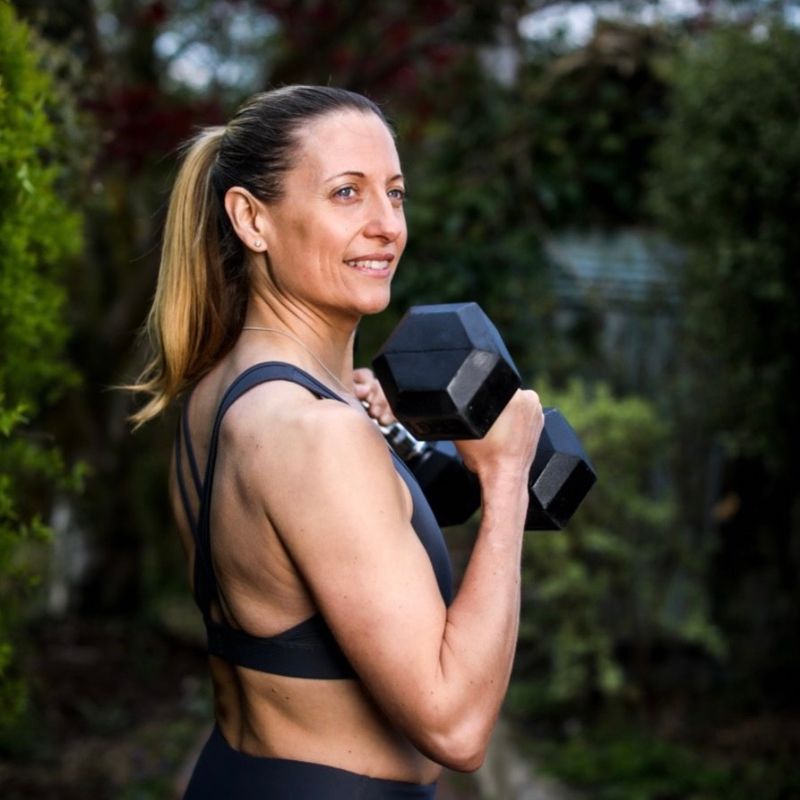
Kate Rowe-Ham is a Level 3 Personal Trainer specialising in helping women reach their fitness potential. As the founder of Owning Your Menopause, she prides herself on helping clients find a love for exercise, giving them the tools they need to adopt a sustainable approach to exercise with long-lasting results.
Tips for finding and using the best strength training apps
- Perfect your form: The downside of using one of the best strength training apps versus having a personal trainer in person is that there's no one there to correct your form. "Ensure the app or platform you are using gives good and precise instructions on how to execute the moves and that you can always reach out and get answers if you need them," says PT Kate Rowe-Ham.
- Try out a selection of apps: You may find that the first app you download isn't the one for you - and that's very normal. Have a look through the other options on this list before making a final decision. Everyone is different and you might get on better with doing Pilates for strength training via Apple Fitness+ than learning how to do resistance band exercises with reps and sets via Fitbod.
- Find a way to be accountable: "It can be hard to remain motivated at home . Having an app that can track your stats is helpful, or get a friend to join you so you can work out together," she says. Another platform could help with this too - for example, one of the best habit tracker apps can keep you maintaining your progress over time.
- Go steady: "Don't go too hard and fast too quickly," says Rowe-Ham. "Progress will be better, more achievable, and sustainable if you go slowly."

Grace Walsh is woman&home's Health Channel Editor, working across the areas of fitness, nutrition, sleep, mental health, relationships, and sex. She is also a qualified fitness instructor. In 2025, she will be taking on her third marathon in Brighton, completing her first ultra marathon, and qualifying as a certified personal trainer and nutrition coach.
A digital journalist with over seven years experience as a writer and editor for UK publications, Grace has covered (almost) everything in the world of health and wellbeing with bylines in Cosmopolitan, Red, The i Paper, GoodtoKnow, and more.
-
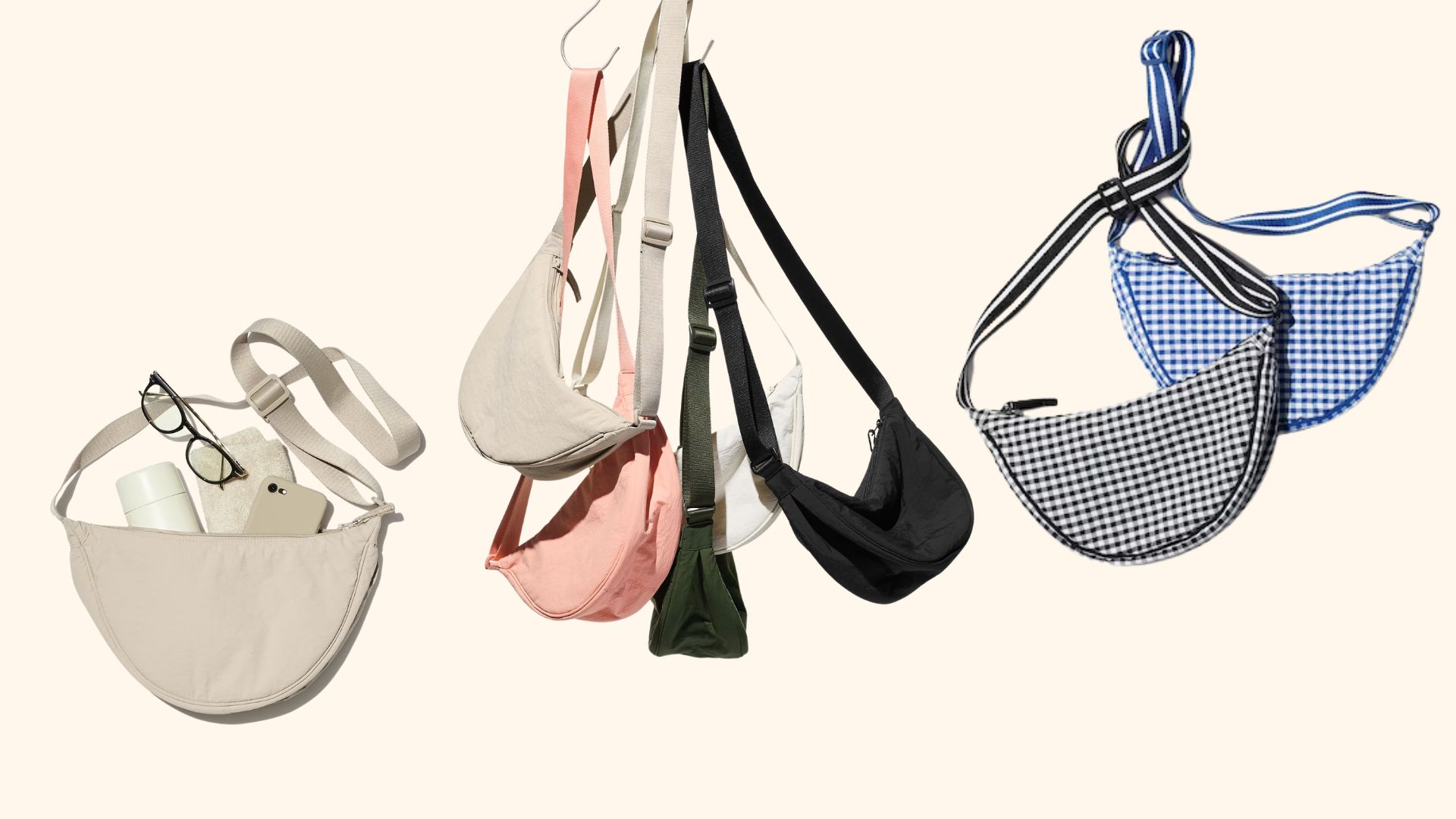 Uniqlo's viral crossbody bag is now under £13 – here's why I'm snapping one up before summer begins
Uniqlo's viral crossbody bag is now under £13 – here's why I'm snapping one up before summer beginsSleek, functional, and surprisingly spacious – this bag is the ultimate travel companion
By Molly Smith Published
-
 Gardening experts reveal how often you should water grass seed for a luscious lawn this summer
Gardening experts reveal how often you should water grass seed for a luscious lawn this summerWant your lawn to be looking its best by the time summer rolls around? You'll need to make sure you're watering it the perfect amount
By Emily Smith Published
